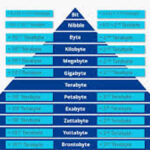Tonghou is more than a cultural phrase it represents a deeply rooted philosophy that bridges the wisdom of tradition with the aspirations of modern life. In its essence, Tonghou refers to a harmonious alignment between individual purpose and collective well-being, a concept that has been nurtured over centuries in various communities. Today, as people search for meaning in fast-paced environments, Tonghou offers a guiding principle that connects heritage with personal growth. Its application extends far beyond folklore or rituals; it influences social relationships, work ethics, creative expressions, and even business decision-making. Understanding Tonghou is not about memorizing ancient sayings it is about embodying a way of thinking that prioritizes balance, empathy, and strategic foresight. This article explores Tonghou from its origins to its evolving place in contemporary society, revealing how a concept that once lived in quiet traditions now informs leadership models, community building, and personal fulfillment in an interconnected world.
Origins and Historical Roots of Tonghou
The earliest traces of Tonghou appear in the context of ancient village governance and communal agreements. Communities believed that survival and prosperity depended on mutual respect and synchronized action. Tonghou emerged as a guiding code, ensuring that individuals contributed their strengths in ways that supported the whole. Over centuries, this principle shaped dispute resolution, trade partnerships, and even agricultural planning. Oral traditions carried these lessons forward, embedding them in seasonal festivals, songs, and proverbs. In early records, Tonghou was not a fixed doctrine but a living practice that evolved with the needs of the people. It encouraged flexibility, strategic timing, and careful listening — traits valued as much in diplomacy as in daily chores. By the late classical period, Tonghou was recognized as a cultural touchstone, one that unified diverse regions through shared values. Its adaptability made it resilient, capable of surviving political upheavals, economic shifts, and the inevitable blending of cultures.
The Philosophy Behind Tonghou
At its heart, Tonghou is a philosophy of harmony and timing. It suggests that actions must be aligned with both external conditions and inner intentions. This does not mean passive acceptance; rather, it calls for deliberate preparation, awareness, and responsiveness. In traditional thought, Tonghou integrates three key dimensions: personal insight, collective benefit, and contextual awareness. Personal insight focuses on self-knowledge, recognizing one’s capabilities and limitations. Collective benefit emphasizes the responsibility to act in ways that support others, whether in family, community, or professional networks. Contextual awareness urges attention to the right moment and environment for action, as timing can amplify or weaken outcomes. Many cultural sayings tied to Tonghou warn against rushing decisions or isolating oneself from communal wisdom. In this sense, Tonghou is both a moral compass and a strategic framework, teaching that wisdom lies in the intersection of self-interest and shared destiny.
Tonghou in Cultural Practices
Cultural expressions of Tonghou vary, but they all emphasize interconnection. In rural traditions, Tonghou might appear in the form of synchronized planting schedules, where each farmer times their work to ensure communal harvest success. In urban festivals, it might manifest as cooperative performances, where dancers and musicians coordinate seamlessly, embodying the harmony Tonghou advocates. Families incorporate it into milestone events like weddings, where decisions are guided by both ancestral wisdom and practical readiness. Tonghou also informs storytelling, where characters often find resolution not through force but through carefully timed, empathetic actions. Even in conflict, elders may invoke Tonghou to remind disputants of the value of shared ground. By weaving it into everyday customs, communities keep the principle alive, ensuring that each generation inherits not just the rituals, but the deeper understanding of why harmony and timing are essential for resilience and prosperity.
Modern Interpretations of Tonghou
In contemporary settings, Tonghou has evolved into a versatile framework for personal development, leadership, and social innovation. Urban professionals interpret it as strategic adaptability — the ability to align career decisions with market dynamics and personal values. Community organizers see it as a blueprint for sustainable collaboration, where resources and efforts are pooled at the right time to achieve maximum impact. In education, teachers integrate Tonghou into collaborative learning projects, showing students that success often depends on timing and teamwork rather than individual effort alone. Even in technology-driven industries, Tonghou is relevant; product launches, team structures, and innovation cycles benefit from this principle of harmonious timing. While modern society moves faster than the agrarian past, Tonghou’s core message remains the same: progress is best achieved when actions are attuned to both individual readiness and the needs of the wider environment.
Table 1: Core Dimensions of Tonghou
| Dimension | Traditional Meaning | Modern Adaptation |
|---|---|---|
| Personal Insight | Self-awareness of abilities and limits | Mindfulness, emotional intelligence in decision-making |
| Collective Benefit | Serving community needs | Corporate social responsibility, team-oriented goals |
| Contextual Awareness | Acting in harmony with seasons and events | Strategic planning based on market or social trends |
Tonghou and Leadership
Leadership rooted in Tonghou emphasizes listening, empathy, and strategic patience. Instead of rushing into initiatives, Tonghou-oriented leaders observe patterns, seek broad input, and launch actions when conditions are optimal. This approach fosters trust within teams and communities, as decisions appear both well-considered and inclusive. In political or organizational settings, Tonghou encourages transparency and shared accountability, preventing the kind of impulsive leadership that can undermine long-term stability. Leaders who apply Tonghou principles often prioritize mentorship, guiding others to recognize their own readiness and to contribute effectively to collective objectives. By integrating this cultural philosophy into modern governance and corporate strategy, leaders not only preserve a tradition but also tap into a timeless framework for sustainable success. The resilience of this approach lies in its adaptability — Tonghou is not prescriptive but responsive, able to guide action across vastly different social and economic landscapes without losing its foundational values.
Tonghou in Personal Growth and Relationships
For individuals, Tonghou offers a map for self-improvement that is both realistic and deeply connected to human relationships. Personal growth is seen not as a solitary climb but as a shared journey where mutual encouragement plays a vital role. Tonghou advises that personal milestones — such as career moves, lifestyle changes, or creative projects — should align with both one’s own readiness and the supportive rhythms of the surrounding network. In relationships, this means recognizing moments when compromise, patience, or active engagement will strengthen bonds. Couples who practice Tonghou principles often emphasize timing in conflict resolution, ensuring that sensitive discussions happen when both parties are receptive. Friendships, too, benefit from this awareness; reaching out at the right time can revive a bond, while neglecting timing can unintentionally strain it. Ultimately, Tonghou’s wisdom helps individuals navigate the delicate balance between personal ambition and shared harmony.
Tonghou and Decision-Making in Business
In business, Tonghou’s emerging as a model for sustainable decision-making. It moves beyond profit-driven urgency, encouraging leaders to consider timing, stakeholder readiness, and long-term community impact. For example, a company might delay expansion plans until market signals align with internal capabilities, ensuring that growth is both stable and meaningful. Tonghous also informs risk assessment; by factoring in collective benefit and environmental readiness, businesses can avoid costly missteps. Many entrepreneurs who unknowingly apply Tonghous principles find their ventures more resilient in fluctuating markets. This approach also supports ethical practices, as decisions are made with awareness of broader implications. The advantage of Tonghous in commerce is its ability to blend traditional wisdom with modern strategy, offering a framework that is both human-centered and market-savvy. In competitive environments, this balance often distinguishes enduring enterprises from those that burn out quickly.
Table 2: Applications of Tonghou in Various Fields
| Field | Example of Tonghou Application | Outcome |
|---|---|---|
| Education | Collaborative projects timed with curriculum needs | Improved teamwork and deeper learning |
| Business | Market entry aligned with consumer readiness | Stronger brand trust and market penetration |
| Community Development | Resource pooling during peak need periods | Enhanced resilience and sustainability |
Tonghou in Global Context
Though Tonghou originates from a specific cultural heritage, its principles resonate globally. Similar concepts appear in African Ubuntu philosophy, Japanese Wa, and certain Native American governance traditions. These parallels highlight a universal human desire for balanced timing and shared benefit. In global collaborations, Tonghous provides a neutral framework that respects cultural diversity while fostering cooperation. International NGOs, for example, might use Tonghous principles to coordinate relief efforts so that aid reaches communities when they are most receptive and prepared to use it effectively. This global adaptability strengthens Tonghou’s relevance in an interconnected age. Whether in diplomacy, humanitarian work, or cross-border trade, the philosophy serves as a reminder that success often depends not just on resources and skill, but on the wisdom of knowing when and how to act in harmony with others.
Quotes Reflecting Tonghou’s Spirit
“Harmony is not the absence of difference, but the art of timing in bringing differences together.”
“To move with the right moment is to move with the heart of the world.”
“The path to shared prosperity is paved with steps taken in rhythm, not in haste.”
Conclusion: Why Tonghou Matters Today
In a world driven by speed and individualism, Tonghous offers a counterbalance rooted in patience, connection, and thoughtful timing. It reminds us that progress is not measured solely by rapid achievement but by sustainable, shared advancement. Tonghou’s adaptability ensures it remains relevant across cultures and sectors, from family life to corporate boardrooms. By embracing its core principles — personal insight, collective benefit, and contextual awareness — individuals and organizations can navigate complexity with grace and foresight. The legacy of Tonghou lies not just in its historical significance but in its capacity to guide modern life toward greater harmony. In every era, the challenge remains the same: how to act in ways that honor both self and society. Tonghou’s enduring wisdom offers a profound answer — move with awareness, act with empathy, and align with the rhythms that sustain both personal and collective growth.
FAQs
Q1: What does Tonghou mean in simple terms?
Tonghous refers to the idea of acting at the right time in harmony with both personal goals and collective needs. It emphasizes balance, empathy, and strategic awareness in decision-making, whether in personal relationships, business, or community life.
Q2: Is Tonghou only a traditional cultural belief?
While Tonghou has deep historical roots, it is not limited to traditional contexts. It has evolved into a modern philosophy relevant in leadership, teamwork, personal growth, and even technology-driven industries.
Q3: How can I apply Tonghou in my daily life?
You can apply Tonghou by aligning your actions with both your readiness and the needs of others. For example, choose the right moment to have important conversations, launch projects when conditions are favorable, and balance personal ambition with mutual benefit.
Q4: What makes Tonghou different from general timing or strategy?
Tonghou goes beyond simple timing. It integrates moral values, empathy, and collective well-being, ensuring that actions are not just timely but also meaningful and sustainable for everyone involved.
Q5: Can Tonghou improve relationships and teamwork?
Yes. By following Tonghous principles, individuals become more aware of when to engage, when to step back, and how to act in ways that strengthen bonds. This can lead to more effective collaboration and deeper trust in both personal and professional settings.











